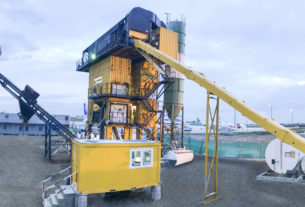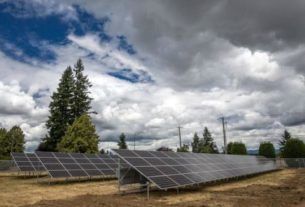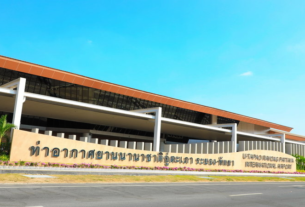The disaster in Japan has added a dramatic but vital dimension to the continuing debate over the use of nuclear power. The 9.0-magnitude earthquake left several reactors stricken and struggling to remain contained. Leaks of radioactive material have caused concern or worse, and authorities have evacuated tens of thousands of Japanese from areas closest to the power stations. It will take a while to determine the final result of these nuclear incidents. This is time that Thais and others should use to more fully discuss this key issue.
The fate of half a dozen nuclear reactors located in at least three generating plants has become an agonising burden in the aftermath of the disaster. The extended earthquake, followed by the massively destructive tsunami, left communities and prefectures shaken and grieving – and the nation shocked. It appears, tragically, that thousands died in the twin calamities. Whole villages disappeared, towns were turned to rubbish. Nearly half a million Japanese are living in shelters in the immediate aftermath of last Friday’s events, refugees in their own prefectures.
The Japanese infrastructure did not collapse, but took a terrible beating. Passenger train service shut down, after four entire trains were swept away by the great waves. Roads buckled and split. Electrical poles toppled and lines snapped, even underground lines. Fortunately, many of the cellphone towers remained up, and texting was a major source of communication and emergency response in the hours immediately following the main earthquake.
Coming to terms with all of this has been mind-boggling, leaving many in shock. Then came the nuclear problem. In the hours and days since the main earthquake, reactors at three main nuclear plants have overheated and technicians have struggled to keep them from melting down. Thus far, some radiation has escaped, but there has as yet been no contamination, no meltdown. Around the plants, around Japan and around the world, everyone hopes that situation improves.
The nuclear scare has properly touched off renewed debate over the use of nuclear energy. This disaster has come just as the technology has gained fresh support and new advocates. Already, without even waiting for the results of the Japanese crisis, anti-nuclear forces have used the problems to advance their opposition. In the United States, several prominent politicians have called for a slowdown of plans to build 40 nuclear plants, a policy supported by President Barack Obama. In Germany, Chancellor Angela Merkel said she will now refuse to extend the lives of nuclear plants scheduled to be closed.
In Thailand, government sources have leaked news that Prime Minister Abhisit Vejjajiva has long leaned against nuclear technology for the country. Mr Abhisit has not exactly opposed stated plans to build at least two nuclear generating plants by 2020. But he has consciously withheld government support.
The plans are chiefly the work of the Electricity Generating Authority of Thailand. Egat favours nuclear power but it has also been realistic about domestic opposition to the technology. Until now, there has been little public discussion of nuclear energy in Thailand. Alternative energy including biofuels cannot replace carbon fuels. There is no denying that nuclear is clean, quiet and environmentally friendly – until things suddenly go bad, as in Japan.
The Thai public deserves a strong voice in the matter and now is an excellent time to begin the debate about nuclear energy in Thailand.
Source: http://www.bangkokpost.com/opinion/opinion/226895/nuclear-energy-takes-a-beating


